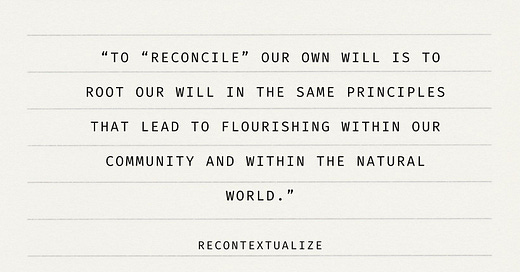Towards the beginning of every philosophy class I teach, I ask the students if they think there are any absolute “moral rules,” that is, if there are any actions that across all of human history could be universally judged as morally right or morally wrong. Throughout my seven years of teaching college students, this question has always been initially met with at least 80 percent of students suggesting that there are no absolute moral rules, that individuals should be allowed to decide for themselves what is right and wrong. In philosophy, this perspective can be called moral relativism. Seven years of teaching has affirmed my suspicion, at least on the coasts of the US where I have taught, that the younger generations tend towards moral relativism.
I do think there is the potential for great wisdom in the recognition that one needs to look deeply within oneself to discover a moral code that resonates with them. Simply following external “shoulds'' and “musts,” no matter how noble the ideals behind them may be, comes with the danger of potential repression when one ignores or buries motivations and desires that do not synchronize or align with the moral code they have adopted. That being said, to move from a strict moral absolutism that leaves no room for the particularities of the individual’s context and psychology to a strict moral relativism that leaves no room for noble ideals by which the individual can orient their values and their actions in a deeply personal way (and challenge themselves to grow) is not a balanced solution to the problem; it appears to be a reaction that swings the pendulum from one extreme to another. Although it is true that an overly strict moral code has the potential to inhibit an individual’s creativity, authenticity, and mental balance, I want to suggest that an excessively loose moral code with no room for external ideals prioritizes the desires and freedom of an individual in a way that is disconnected from their responsibilities to their larger community and context.
Keep reading with a 7-day free trial
Subscribe to recontextualize to keep reading this post and get 7 days of free access to the full post archives.



